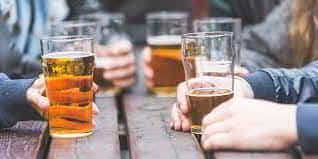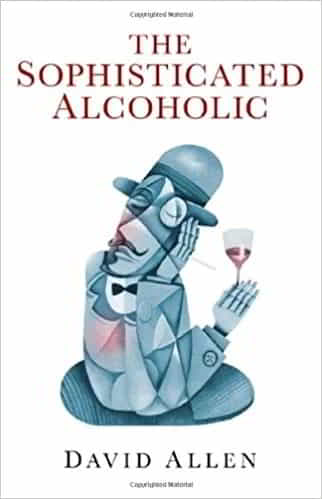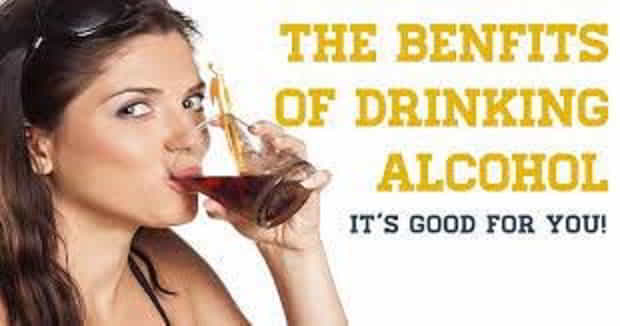DrinkDrive
DO YOU DRINK ALCOHOL - IF SO, HOW MUCH?
You find if you drink alcohol it is similar to smoking – it’s a habit. In moderation drinking isn’t bad for you like most things in life. But excessive drinking can cause physical, social, financial, mental issues arising from excessive consumption.
Drinking alcohol especially today with the new world wines and fruit flavoured spirits and ciders/beers can become additive without you realising. The reasons people drink vary from social to relieving stress and anxiety to feeling part of a crowd but all can lead to drink addiction and once our bodies get a taste for alcohol, like smoking it is hard to stop.
We show hard statistics about excessive drinking of alcohol, provide support and guidance on how to reduce or stop and give helpful support groups who can assist locally.
The cost of installing renewable Energy is seriously expensive and the support for maintenance and service can be very patchy and expensive.
Let’s take a look at some of the facts and what is safe and what are the consequences or impact on your health from excessive drinking.
Click on a heading below and see a summary, and if you're interested you can GO and read more about it!
Here are some facts and stats about drinking. GO!
Look at drinking habits by age group. GO!
What’s a safe amount to drink each week? GO!
A lot of people who know they drink too much don’t see themselves as alcoholics. GO!
See whether there are any benefits to drinking. GO!
See what the serious side effects are. GO!
There are sociable and peer group reasons for drinking GO!
If I want to cut down, what’s the best way to do it? GO!
If you’re a visitor to our site you can join and download information, assess your own health and create your own action plans, and even contribute to our site. GO!
See what you can do next. GO!
We have some additional information on this subject. GO!
Facts About Drinking Alcohol
to hospital in 2020 related to alcohol – up 22.5% from 2019
According to the 2015 National Survey on Drug Use and Health (NSDUH), 86.4 percent of adults reported having drank alcohol at some point in their lifetime.
related to alcohol-specific causes registered in the UK in 2020 – up 18.9%
Strong beer at 6% abv has six units in one litre – if you drink half a litre (500ml), which is just under a pint, then you have had three units (BDA).
prescription items dispensed in England in 2020
wine at 14% abv has 14 units in one litre – if you drink a quarter of a litre (250ml), two small glasses, then you have had three and a half units (BDA).
for items prescribed for alcohol dependence in 2019 in England
24% of adults in England and Scotland regularly drink over the Chief Medical Officer’s low-risk guidelines (AlcoholChangeUK).

Adult Drinking Habits in Great Britain
The Office for National Statistics released their paper: “Annual data on alcohol consumption by adults, including changes in drinking patterns in recent years and data for those who do not drink”. Some key points are shown below.
Young people aged 16 to 24 years in Great Britain are less likely to drink than any other age group; when they do drink, consumption on their heaviest drinking day tends to be higher than other ages.
YouDrive are concerned this may lead to binge drinking – see below.
Men are more likely to drink alcohol than women. 61.9% of men and 52.4% of women drank alcohol in the week prior to interview.
Looking at drinking habits by age, the highest consumption was found among those aged 45 to 64 years, with 64.6% saying they drank alcohol in the past week; the lowest was found among those aged 16 to 24 years, with 47.9% saying they drank alcohol in the past week.
The generally higher levels of binge drinking among those aged 16 to 24 years could be due to the data capturing those who tend to drink excessively on Friday or Saturday nights and then not much else during the rest of the week.
Data from other sources, which measure drinking habits on more than one day, show that the most harmful drinking tends to be among middle-aged drinkers, as these individuals are more likely to drink every day.
When looking at drinking habits by socio-economic status, in 2017, around 7 in 10 people (69.5%) who said they worked in managerial and professional occupations drank alcohol in the week before interview. In contrast, 51.2% (around one in two) of people working in routine and manual occupations said they drank.
Macmillan Cancer Support found each Briton spends around £787 a year on alcohol, with London’s concentration of drinkers spending sizably more. The research, conducted by Onepoll, surveyed 2,000 over-18s. Men spent an average of £934.44 per year, the data found, compared with women spending £678.60.30 Sep 2014.

So, what is a safe amount of alcohol to drink each week?
Check out the table below, which shows how the standard low risk guidelines can be made up.
Click on the tab on the right to see the table


A lot of people know they are drinking too much, but don’t see themselves as alcoholics.
A lot of people know they are drinking too much, but don’t see themselves as alcoholics. They would like to drink less but never really get round to it – there are just too many reasons to carry on as they are.
Especially when they see the draconian response involving complete abstinence and constant attendance of meetings at self-help groups – hair shirt not essential!
We like the approach taken in this book by David Allen. It breaks all the rules about treating alcoholism – it’s not just about the stereotypical alcoholic but the invisible majority, these people are the middle-class drinkers, they are in control of their lives with the significant exception that they know that their use of alcohol is excessive. These are the silent majority – the ‘Sophisticated Alcoholics’.
We like to think the book was written about one of the YouDrive principals!
It suggests the view that alcoholism is a disease is wrong, and depressing. It says that changing beliefs and perceptions is at the heart of tackling excessive and damaging drinking. This is fundamental to our approach – you have to want to change – this book says that you CAN change and you are not a slave to your genes or an incurable disease.
The editor is current NHS consultant psychiatrist Dr James Kustow. You can see the book on Amazon here. If you have any questions you’d like to ask the author or you just want to get in touch, use this email rather than the one in the book: [email protected]

Are there any medical benefits to drinking alcohol
According to the Mayo Institute there are naturally pros and cons of drinking. Here we detail some of the benefits from moderate alcohol intake.
Any potential benefits of alcohol are relatively small and may not apply to all individuals. In fact, the latest dietary guidelines make it clear that no one should begin drinking alcohol or drink more often on the basis of potential health benefits. For many people, the possible benefits don't outweigh the risks and avoiding alcohol is the best course.
On the other hand, if you're a light to moderate drinker and you're healthy, you can probably continue to drink alcohol as long as you do so responsibly.
Defining moderate
Moderate alcohol use for healthy adults generally means up to one drink a day for women and up to two drinks a day for men.
Examples of one drink include:
Beer: 12 fluid ounces (355 milliliters)
Wine: 5 fluid ounces (148 milliliters)
Distilled spirits (80 proof): 1.5 fluid ounces (44 milliliters)
Moderate alcohol consumption may provide some health benefits, such as:
• Reducing your risk of developing and dying of heart disease
• Possibly reducing your risk of ischemic stroke (when the arteries to your brain become narrowed or blocked, causing severely reduced blood flow)
• Possibly reducing your risk of diabetes
• However, eating a healthy diet and being physically active have much greater health benefits and have been more extensively studied.

What are the serious side effects to excessive drinking?
Risks of heavy alcohol use
While moderate alcohol use may offer some health benefits, heavy drinking — including binge drinking — has no health benefits.
Heavy or high-risk drinking is defined as more than three drinks on any day or more than seven drinks a week for women and for men older than age 65, and more than four drinks on any day or more than 14 drinks a week for men age 65 and younger.
Binge drinking is defined as four or more drinks within two hours for women and five or more drinks within two hours for men.
Click on any of the tabs on the right to see more information
• Excessive drinking can increase your risk of serious health problems, including:
• Certain cancers, including breast cancer and cancers of the mouth, throat, oesophagus and liver
• Pancreatitis
• Sudden death if you already have cardiovascular disease
• Heart muscle damage (alcoholic cardiomyopathy) leading to heart failure
• Stroke
• High blood pressure
• Liver disease
• Suicide
• Accidental serious injury or death
• Brain damage and other problems in an unborn child
• Alcohol withdrawal syndrome
In certain situations, the risks of alcohol may outweigh the possible health benefits. For example, check with your doctor about drinking if:
• You’re pregnant or trying to become pregnant
• You’ve been diagnosed with alcoholism or alcohol addiction, or you have a strong family history of alcoholism
• You’ve had a haemorrhagic stroke (when a blood vessel in your brain leaks or ruptures)
• You have liver or pancreatic disease
• You have heart failure or you’ve been told you have a weak heart
• You take prescription or over-the-counter medications that can interact with alcohol
A recent. Gov survey 2019 of pregnant women found 41% of women in the UK drank alcohol during their pregnancy. Among UK women who drink any alcohol when pregnant, an estimated 19% drink more than seven units of alcohol on one occasion.
According to the NHS:
Drinking alcohol during pregnancy increases the risk of miscarriage, premature birth and your baby having a low birthweight. It can also affect your baby after they’re born. Drinking during pregnancy can cause your baby to develop a serious condition called foetal alcohol spectrum disorder.


The problem with drinking is it’s so sociable and part of people getting together
As you can see by the important statistics above, pregnant women drinking whilst pregnant especially the binge drinking shows that social outings, parties and get togethers are a common place in the UK and usually involve congregating in pubs and bars. The temptation even when you know you should refrain is hard to resist. So, alcohol is not only sociable but its moreish.
In the 90s the alcohol industry developed alcopops; fizzy drinks with alcohol added which revolutionised the industry. Up until then it was often about taste. You either liked beer or wine or spirits but the industry introduced fizzy drinks containing alcohol that were not only laced with sugar but you didn’t feel the alcohol, it just tasted like a fizzy drink. During the noughties alcopops seem to drop off but by 2010 mixer alcohol came back with flavoured spirits and wines.
Click on any of the tabs on the right to see more information
There are currently 1722 different varieties of gin all designed for that Moorish feeling and to mix with a soft drink just like alcopops. There are 40 different types of rum and over 36 different flavours of Vodka.
All these new products are there to entice younger drinkers. Add this to a soft drink and you have a serious issue. People don’t realise how Moorish and additive they become and it’s a double whammy in the caloric value is huge due to the soft drink.
Have you recently visited the super market especially the white wine sections and noticed the labels all contain information about the wine. Originally most people thought; when it said a hint of vanilla it was wine snobbery but not its not true it really does have a hint of vanilla extract. In fact now you get basic wine infused with every conceivable item under the sun from winter berries to strawberries, cinnamon, vanilla and quince. As we said before since time began wine was wine, red, white or rose. But in the last 15 years especially for the UK market [These flavoured wines are not that popular in Europe] the wine industry has been blending wine with fruit flavourings from mainly new world countries in order to make them more appealing to consumers. In fact there has been 30% in 2020 reduction in traditional French wine.

So, do you want to go for real wine or alcowine? For sure if you lined up 10 bottles of mixed wines the alcowines will come out on top because the industry is spending a fortune on developing new tastes similar to Gin.
Which generation consumes the most wine?
According to McMillan’s preliminary findings:
• Generation Z (ages 21-23) consumed 3 percent in 2020
• Millennials (ages 24-39) consumed 20.1 percent in 2020
• Generation X (ages 40-55) consumed 34.9 percent in 2020
• Boomers (ages 56-74) consumed 36.7 percent in 2020
• older generations (75+) consumed 5.3 percent in 2020
I definitely drink too much, so I need to take steps to sort it myself I should try and get some help
Clicking the button on the back gives you more information and YouDrive’s view!
I'll reduce my drinking myself
Get help with your drinking
For visitors
Why don't you join us?
You can register to join us as a member, when you’ll be able to download our stuff and comment, or as a YouDriver when you’ll also be able to check your health and set up your own action plans to make some improvements. If you’ve already registered, sign in below. Or let us know what you think.
Alcohol and Anxiety
Alcohol and Anxiety
This is a Pint of Science talk by Maddy Prior from the University of Bristol. It looks at the link between anxiety and alcohol abuse.

Next Steps
It doesn’t matter what stage you’re at – it’s important to be the best you can be. At the end of the day it’s about taking personal responsibility – You Drive!
It’s really your choice. You can find out more information about the subject, or see other institutions that can help by going to Support. There you will find organisations, training, coaching, self-help courses and other items to support your personal change. We have also started developing a panel of experts to provide info, advice, help and support.
Get Support
There are times when you need some help to meet your aims – a helping hand. That might be an organisation that can provide you with some help, some specialised information or support, or just getting some background reading material.
You can see these by clicking the Support button here. Some products or services contain affiliate links and we may receive a commission for purchases made through these links
Experts
We are compiling a list of experts who can provide advice, help or specialised services. You will be able to access these experts from anywhere on our site you see our ‘Experts’ symbol. Click the green E to see what our Experts list will look like, with a couple of imaginary ‘experts’ added!
More Information
Scroll down to see more information on this Drive.
If you register you can also download reports, white papers, quizzes and other collaterals. We will never ask you for any financial information, and we’ll only send you the information you want. You can register for our site either above or in the footer below. You can provide your own questions and experiences in order to help other members. We only moderate for spam and inflammatory language – see our moderation policy.
If you’ve found this interesting, then please share it on social media. Choose your network!
More information
Alcohol and You – 21 Ways to Control and Stop Drinking
How to Give Up Your Addiction and Quit Alcohol (Self Help) Paperback
“Alcohol and You” includes everything you need to self-diagnose alcohol problems and find the solution that is right for you.
The Sophisticated Alcoholic
The book breaks all the rules about treating alcoholism.
It’s not just about the stereotypical alcoholic but for the invisible majority, the middle class drinkers, the people who are in control of their lives but with one significant exception that they have already concluded that their use of alcohol is excessive. These are the silent majority the ‘Sophisticated Alcoholics’.
Easy Way to Control Alcohol
Allen Carr – Paperback
Allen Carr established himself as the world’s leading authority on how to stop smoking and The Easy Way to Control Alcohol applies his revolutionary method to drinking. With startling insight into why we drink and clear step-by-step instructions, he shows yo the way to escape the “alcohol trap” in the time it takes to read this book.
The 10-Day Alcohol Detox Plan
Stop Drinking Easily & Safely (Self Help Book 1) Kindle Edition
Do you want to take a break from alcohol easily and safely?
When you stop drinking, it takes up to 10 days for the alcohol to completely leave your system. It’s a tricky time. You get cravings and your thinking becomes emotional.
The NHS have a section on alcohol support
Drinkaware specialise in drink related problems
DrinkCoach is a service providing coaching support and a free app to monitor your drinking
